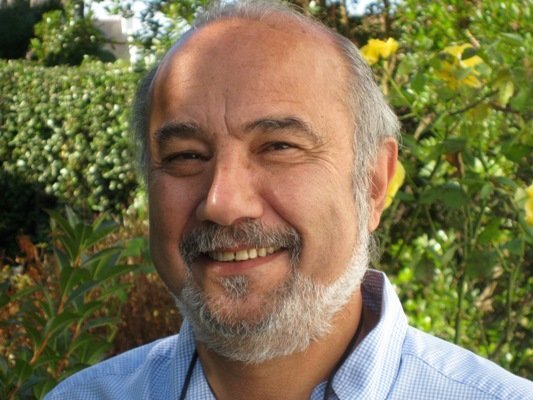By Javad Heirannia
TEHRAN – A professor of international business at the George Washington University tells the Tehran Times that General Qassem Soleimani “was key in uniting Shia militias and Kurdish forces against ISIL in Iraq and restoring the Iraqi government’s sovereignty over much of Iraq.”
Hossein Askari also says, “Iran has been a victim of terrorism. Iran has been the target of an organization that many countries classify as a terrorist—the Mujahedin-e-Khalq or MEK.”
Following is the text of the interview:
Q: In 1972, a specialized Committee on Terrorism was set up at the United Nations, and member states made great effort to provide appropriate definitions of international terrorism, but due to intense political differences, the actual definition of international terrorism and comprehensive conventions in practice was impossible. Security Council Resolution 1373 was the most serious attempt to define terrorism after 9/11, which evolved into UN Security Council Resolution 1535. Despite providing a definition of terrorism, countries approach it differently. What is the reason?
“To me, General Soleimani was an Iranian patriot who fought terrorists endangering Iran.”A: Let’s face it, it is hard, if not impossible, to define terrorism. It is a concept that depends on the eye of the beholder. As many have recognized, a person that some may label as a terrorist may be called a freedom fighter or liberator by others. It seems that most definitions include some of the following terms: an act of violence, initiated by non-state actors, against non-military combatants and targets, intended to strike fear and extract political concessions and international terrorism adding a cross border dimension. While these terms may capture many of what most experts have in mind when describing terrorism, to my mind they are still woefully incomplete. To begin with, why are states exempt from the definition? How are covert operations by the major powers that result in kidnapping any different than when the same is done by a non-state actor? Why is a bomb dropped by a plane on civilians more legitimate than a pipe bomb used by a single person? A state has the option of invading an adversary whereas a disenfranchised group does not have the same option and takes up arms in attacks where it can, so why is one terrorism and the other not?
Please note that different entities even in the United States have dissimilar definitions of terrorism. For instance, the FBI and the Department of State have conflicting definitions of terrorism.
In the end, it is a fungible term that is misused to fit the needs of those in power.
Q: How do you assess the role and position of Iran in the fight against terrorism in the region?
“Israel has inflicted harm on Iranians inside and outside Iran that can be classified as terrorism. Yet, most so-called champions of democracy and world order say nothing. The United States has carried out covert operations against Iranian officials, yet the word terrorism does not pass many lips.”A: Let’s face it. Iran has been a victim of terrorism. Iran has been the target of an organization that many countries classify as terrorist—the Mujahedin-e-Khalq or MEK. Yet, countries and leaders of Iran’s adversaries change their classification of the MEK depending on the state of their relations with Iran. Israel has inflicted harm on Iranians inside and outside Iran that can be classified as terrorism. Yet, most so-called champions of democracy and world order say nothing. The United States has carried out covert operations against Iranian officials, yet the word terrorism does not pass many lips.
At the same time, when Iran supports Hezbollah, a political party in Lebanon, Iran is called a state sponsor of terror. When Iran supports the President of Syria, it is called state terror.
Q: How do you assess the role and position of General Qassem Soleimani in the fight against terrorists, especially ISIS, in the region?
General Soleimani had multiple roles in the region. Foremost, he was a true Iranian patriot. He fought to keep Iran safe. He was always in the cause of defending Iran against its enemies. The general had a key role in Afghanistan after 9/11. He was key in uniting Shia militias and Kurdish forces against ISIL in Iraq and restoring the Iraqi government’s sovereignty over much of Iraq. I could go on and list more of his positive exploits.
He was praised by U.S. generals. But then they turned against him when their interests did not coincide. Sadly they even turned against him and called him a terrorist. President Bush rewarded him and Iran by calling Iran a member of the Axis of Evil! And of course who committed the ultimate terrorist act and assassinated this Iranian General in a foreign country?
Let’s face it, terrorist is a fungible word. It is sometimes used correctly and at other times it is used to brand an adversary in order to legitimize the illegitimate. To me, General Soleimani was an Iranian patriot who fought terrorists endangering Iran.
Q: Given the conflict of interest of different countries, can we see the same action by countries against terrorism? What mechanism can equalize the performance of countries against terrorism?
A: Although countries may define terrorism differently, they may come together if their interests coincide. Iran and the U.S. did so in Afghanistan and in Iraq. But it lasted for a limited period of time when their interests coincided but not in times when interests diverged. The key is shared interests.
For my part, I wish we could come up with different terms to describe events more precisely. Not using this capture all word—terrorism— that is so misleading and misused.


No comments:
Post a Comment